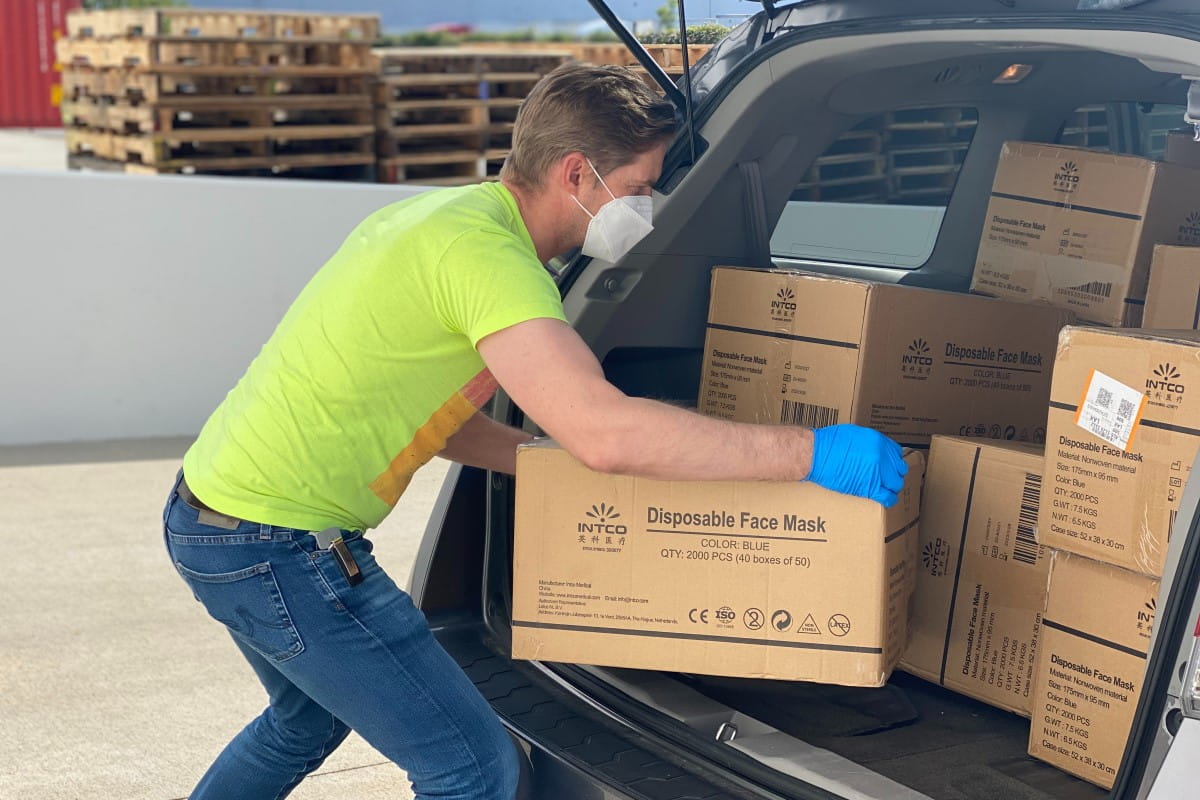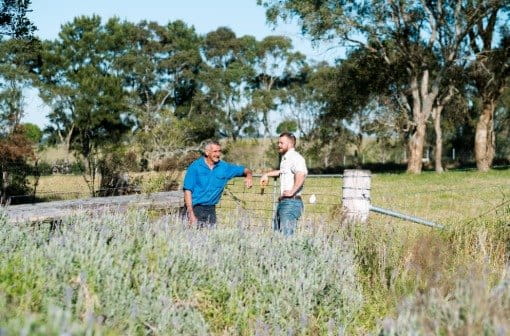“When you’re investing your time and skill in an area that you’re passionate about, you generally get higher levels of wellbeing.”—Grace Singh, General Manager of Community, Wellbeing and Safety at Australian Unity.
Key points
- There is a strong connection between wellbeing and volunteering, with most people experiencing a positive flow-on effect from lending a hand.
- Volunteering forges connections and community, and this sense of belonging is essential for happiness.
- According to Australian Unity Wellbeing Index data, the average volunteer is female, in a relationship and aged 60.
Each year across Australia, nearly five million volunteers contribute more than 489 million hours to charities and community organisations.
Just as many people volunteer informally, taking care of essentials such as transport and domestic work for their community.
Research shows there is a strong connection between wellbeing and volunteering, with many people reporting elevated feelings of happiness and wellbeing. Look closely at the benefits of volunteering and you will understand why.

A recipe for happiness
According to the Australian Unity Wellbeing Index, people who see volunteering as their greatest source of personal achievement have higher levels of happiness than people who nominate other sources of personal achievement.
In fact, their wellbeing scores are above the normal range—and are higher than people who see relationships, family, sport or even paid work as their greatest source of personal achievement.
But why does volunteering make us feel so good?
“It’s about time well spent,” says Grace Singh, General Manager of Community, Wellbeing and Safety at Australian Unity.
“Volunteering is about ‘I have time, where would it add most value and contribute to the community?’”
Feeling valued and contributing to your community boosts your mental health by counteracting the effects of stress, anger and anxiety; increases your self-confidence; and helps you stay physically healthy. It can even help you sleep better.
And you don’t need to spend a lot of time volunteering to reap the wellbeing benefits either, with our research showing that part-time volunteers have even greater satisfaction than full-time volunteers across the full range of wellbeing domains.
Who are our volunteers?
According to Australian Unity Wellbeing Index data, the average volunteer is female, in a relationship and aged 60.
Women certainly receive a greater boost to their happiness from volunteering than men. Female volunteers have the highest wellbeing scores of any occupation status, while male volunteers have below-normal wellbeing scores.
But Grace is unsure whether the appeal of volunteering is a gender trait or a personality trait.
“Anyone can volunteer. Traits such as empathy, caring, advice, or problem-solving apply to all genders,” she says.
“At the end of the day, it's often about providing your personal value and making a contribution.”
Christian Stenta, Manager of Social Change at the Australian Red Cross, an Australian Unity community partner, explains that there are a variety of reasons why people might volunteer.
“People might choose to volunteer to develop specific skills. Sometimes they’re looking for particular employment experience. But a lot of people volunteer because it’s a way to express things that matter to them that they might not be able to do through their paid employment.”
A sense of purpose
Volunteering has long been associated with a strong sense of purpose, so it’s unsurprising that both full- and part-time volunteers outscore the general Australian population when it comes to the domain of achieving in life.
For Grace, the connection between volunteering and a sense of purpose is a natural one. “When you’re investing your time and skill in an area that you’re passionate about, or advocate for, you generally get higher levels of satisfaction that contribute to your wellbeing,” she says.
Christian agrees that volunteering is a great way for someone to indulge their passion.
“You might be an accountant during the day [for example], but want to get involved in more creative or artistic pursuits that you're really passionate about through volunteering.”
It’s all about community
Volunteering also forges connections and community, and this sense of belonging is essential for our happiness, explains Christian.
“Communities with higher levels of volunteering display higher levels of belonging, as well as higher levels of trust, less crime and the ability to be able to collectively respond to challenges and needs in the community. You get incredibly good hormones like endorphins released when you’re feeling connected.”
It’s a fact highlighted by Australian Unity Wellbeing Index research that shows full-time volunteers and part-time volunteers both significantly outscore the average range for community connection.
Volunteering not only helps build new relationships but can also increase your social and relationship skills. And by strengthening ties with your community, you effectively build a support network.
The exception? Caregiving
While volunteering can boost our sense of purpose and overall contentment, if you are caring for an elderly parent or a disabled child your sense of wellbeing is likely to be lower than average across almost all domains.
In 2017, the Australian Unity Wellbeing Index research team participated in the StressLess Mobile App Study and found that, on average, unpaid carers showed high levels of stress, depression and anxiety.
Alarmingly, almost half of the sample appeared to be at risk of experiencing a psychological disorder.
While everyone’s circumstances differ, it seems that the relentless grind of everyday care—combined with the inherent financial and relationship pressures of unpaid caregiving—can have a significant impact on personal wellbeing.
Grace also notes that the very nature of caregiving can have an effect. “Vicarious trauma can be a key impact on a person’s wellbeing,” she says. “[Carers] see the pain or suffering, or are empathising and listening to some quite challenging experiences in life, and that can impact on someone over time.”
While the wellbeing of carers is a considerable concern, volunteering—whether it’s a day a week for a charity, a few hours a month at your local sports club or mowing the lawn for your elderly neighbour—will, almost undoubtedly, make you happy. And that’s a great reason to lend a hand.
Disclaimer: Information provided in this article is of a general nature. Australian Unity accepts no responsibility for the accuracy of any of the opinions, advice, representations or information contained in this publication. Readers should rely on their own advice and enquiries in making decisions affecting their own health, wellbeing or interest. Interviewee names and titles were accurate at the time of writing.
.jpg)

.jpeg)